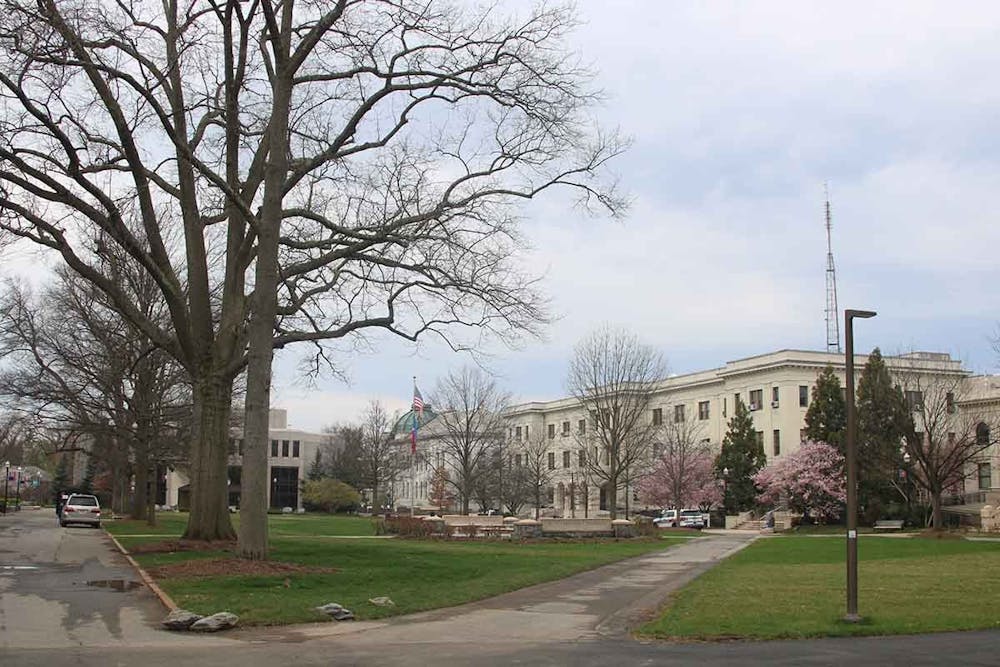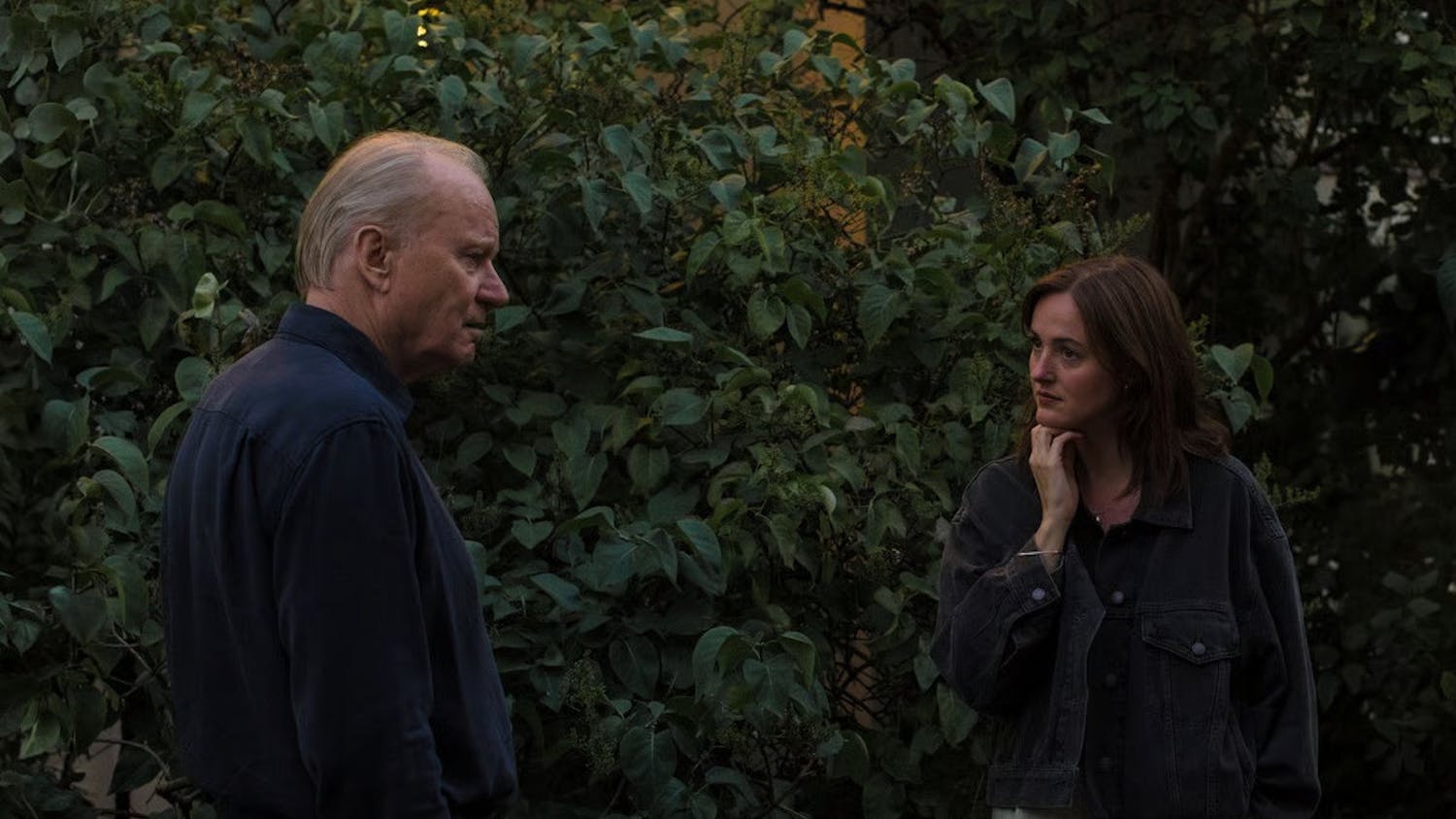A D.C. District Court judge moved forward elements of a case on Sept. 18 involving an American University student who sued AU in 2019 over the handling of a Title IX investigation.
Title IX is a federal law aimed at protecting against sex discrimination in education. The court granted AU’s motion to dismiss a count of negligence, but it denied the University’s motion to dismiss multiple other counts.
In October 2019, an unnamed student, who is referred to in the case under the pseudonym John Doe, alleged in a civil suit that the University’s Title IX office mishandled a sexual assault investigation after an AU student, under the pseudonym Jane Roe, filed a complaint against him.
Doe filed a complaint with the court in 2019 after he was suspended from AU for a year and a half, two and a half years after the event transpired between Doe and Roe in 2016, the lawsuit alleges. Doe went to court to challenge his suspension on the grounds of gender discrimination and breaches of contract.
In a memo, Judge Amit P. Mehta detailed both Doe and Roe’s accounts of the event that transpired in 2016, with the point of contention in their accounts being the nature of the consent that was given.
Background
On April 22, 2016, Doe, Roe and a friend of Doe’s gathered at Doe’s apartment, according to the memo. It states that Doe and the friend drank alcohol, and Roe ate a marijuana-laced brownie. The memo states that in Doe’s account, later that night, he began to make sexual advances on Roe, repeatedly asking for consent before doing so. Doe said that Roe gave consent each time.
According to Roe’s account, the memo states that she described feeling dizzy after eating a portion of the brownie, and she “hit the floor like a rock,” with her memory blurry from that point on. She remembered being confused when Doe asked her if she consented to sexual advances. Later in the evening, Roe alleges that Doe pressured her to finish the rest of the brownie and forced her to say “yes” when she didn’t respond immediately to questions about consent. Doe proceeded to make painful sexual advances on Roe, she alleges, to which she screamed “no” before leaving the apartment.
On Jan. 9, 2019, Roe filed a complaint with Title IX investigator Fariha Quasem, who was the sole investigator at the time, according to the memo. In May 2019, Quasem completed a report about the investigation, where she issued a split decision that there was not sufficient evidence to prove that Doe raped Roe; however, Quasem did find that Doe violated the Student Conduct Code and did not ask for consent before making certain advances. The memo states that Quasem’s investigation found Doe responsible for sexual assault.
In the latest version of AU’s Discrimination and Sexual Harassment Policy, which was amended in 2018, consent is defined as “words or conduct indicating a freely given agreement to have sexual intercourse or to participate in sexual activities. Silence or lack of resistance does not imply consent.”
According to the policy, sexual activity is considered “without consent” when no clear verbal or nonverbal consent is given, if it is inflicted through force or coercion or if the person is physically or mentally incapacitated.
Quasem’s findings were based on the preponderance of the evidence — meaning that it was more likely than not that Doe had violated University policy.
She presented her findings to AU’s office of Student Conduct and Conflict Resolution Services, and a sanctioning panel suspended Doe from July 1, 2019, to Dec. 31, 2020. Doe appealed the decision on July 15, 2019, alleging that Quasem failed to interview certain people during the investigation and that his punishment was excessive. His appeal was found “not viable” on July 25, 2019.
Quasem did not respond to a request for comment, and the Office of Equity and Title IX referred comment requests to the University’s communications office.
Breach of contract claims
In his 2019 lawsuit, Doe argued that the University breached its contract with him on a number of grounds, with the first being AU’s failure to apply its one-year limitation to Roe’s nearly three-year-old claims against Doe.
In 2016, when the event in question occurred, the code stated that “the complainant will have one year from the date of discovery to file a complaint as set forth in these policies.”
However, when Roe filed her complaint in 2019, the Student Conduct Code no longer contained the one-year timing provision, and complainants were told to “file a complaint as soon as possible following the alleged discrimination.”
Doe said in his complaint that the University should have obliged with the guidelines that were in place when the event occurred, and since it didn’t, AU breached its contract. Mehta agreed in the memo –– Roe did not provide a written statement of extenuating circumstances for filing late –– and said in the case that this argument will move forward.
The other two of the six elements of Doe’s case that survived were breaches of contract through Quasem’s alleged failure to provide a thorough and impartial investigation and alleged failure to provide Doe with information on the sanctioning panel.
The Student Conduct Code outlines the procedure that must be followed once a Title IX complaint is filed. According to the 2018-2019 Student Conduct Code, if students are suspended, they are entitled to a disciplinary hearing before a sanctioning panel that consists of the panel members, administrators, complainants and respondents. In those situations, respondents are provided with written notice of the allegation, reasonable access to the case, the opportunity to respond to the evidence and a right to be accompanied by an adviser.
Doe argued in his complaint that he was not provided with the identities of the sanctioning panel members and not given the opportunity to request their recusal, which was a breach of the conduct code.
The 2018-2019 Student Conduct Code states that “students accused of conduct violations are entitled to ... request that any person conducting a disciplinary proceeding or serving as a Conduct Council member or hearing administrator, be disqualified on the grounds of conflict of interest.”
Doe could not physically attend the sanctioning panel because he was in Kuwait at the time, and as a result, he was told that he could not challenge anyone. Nothing in the code suggested this, so Mehta agreed that this was a breach of contract.
Gender discrimination claim
Mehta wrote in the memo that in order for Doe to successfully argue that there was gender discrimination in the investigation, he had to prove that “gender bias was a motivating factor behind the erroneous finding.”
Mehta wrote that Quasem never questioned Roe’s ability to recall events three years later, even with Roe admitting that her memory was blurry, but latched on to “minor critiques of Doe’s credibility.”
For example, the memo said that the testimony of Doe’s friend starkly contrasted Roe’s, because the friend said that he never saw any physical contact between Doe and Roe, but Roe said the opposite.
Mehta said this was indicative of “plausible gender bias.”
Doe also pointed to pressure that AU had to hold men accountable for sexual assault during the time of the investigation, which began in 2014 when leaked text messages and emails of fraternity members of Epsilon Iota revealed sexist comments toward women at AU.
Following the national attention that the fraternity’s actions garnered, AU adopted an investigative model in 2017, which many sexual assault survivor advocates argue reduces trauma for survivors, when compared to a live hearing. Doe alleged that Quasem “brings a bias in favor of female complainants into every case she investigates and adjudicates.”
Doe alleged in his suit that Quasem’s approach to sexual assault education and training has centered around violence by men against women, claiming that she could not be impartial in his investigation.
Mehta ruled that the gender discrimination claim will move forward.
University response
“American University’s Title IX policies and procedures are designed to enable the University to respond to reports in good faith, in accordance with applicable law, and in a manner that promotes fairness, impartiality, and prompt resolution for all parties,” AU spokesperson Stacie Burgess said in an email to The Eagle. “The Office of Equity and Title IX’s critical responsibilities include formal and informal complaint resolution, as well as training and prevention and awareness programming. We cannot comment on specifics of pending litigation.”
In March 2019, AU was the only university in the country to have five open federal Title IX investigations into potential sexual violence violations, as previously reported by The Eagle and AWOL.
In July, AU President Sylvia Burwell announced the establishment of the new Office of Equity and Title IX to further “continuing efforts to dismantle structural racism, eliminate gender-based violence, support survivors, and address barriers that prevent members of our community from full participation and access.”
The new office went into effect this year on Aug. 14.
On Sept. 24, AU asked the court for a two-week extension to file an answer to the complaint.





